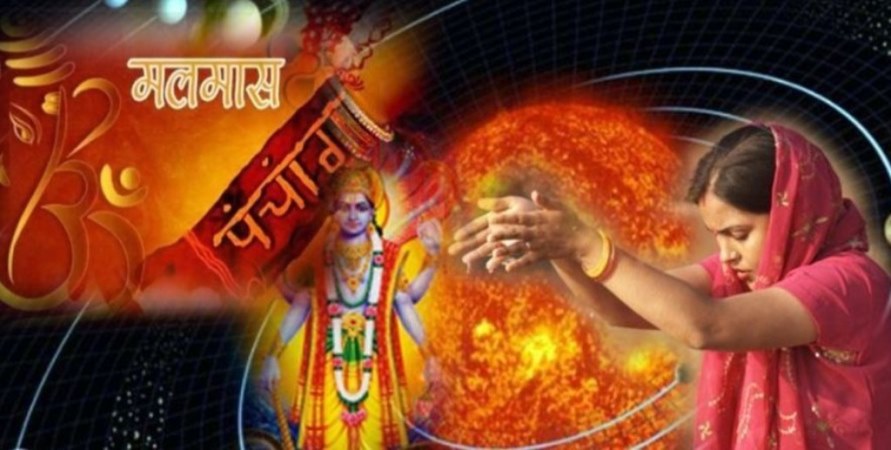What exactly is Malamas ?

By Aashish Mishra
Kathmandu, Sept. 23:
Yasmin mase na sankranti, sankranti dwayameva wa;
Malamas sa vigyeyo mase trimsattme bhaweta.
Or the lunar month with no Sankranti is called Malamas.
The transition of the sun from one zodiac sign to the next in Hindu astrology is called Sankranti. When there is no Sankranti in a month then that month is a Malamas, explained Dr. Chinta Mani Yogi, a scholar of Eastern philosophy and the founder principal of Hindu Vidyapeeth School.
Astrologer Suresh Raj Giri simplified it further. “When no Sankranti, which we normally associate with the first day of every Nepali month, falls in the period between two new moons, then that becomes the Malamas month,” he explained.
This year Malamas is being observed from September 18 to October 16 in the Nepali month of Ashwin. September 17 (Ashwin 1) was a new moon day and October 16 (Ashwin 30) is a new moon day. There is no Sankranti between the two dates, hence the month is Malamas, according to Giri.
Reason for existence
Astrologer Dr. Birendra Prasad Kayastha elucidated that Malamas was a way to align the lunar calendar with the solar one. “A solar calendar year is 365 days and six hours long, while a lunar calendar year is 354 days and nine hours long; with a difference of 11 days between the two,” he said, adding, “This difference needs to be adjusted every three years to adjust the lunar and solar calendars.”
Dr. Yogi went into detail, “The 11 days’ difference becomes 33 days over three years. These 33 days are grouped into an additional 13th month in the lunar year and that month is called Malamas.”
Being an additional month, the month is also called Adhik Mas, the epithet Adhik meaning extra and Mas meaning month. This Adhik Mas occurs every three years or 32 months and 16 days to be precise.
Mythological context
Scriptures associate this month with Lord Vishnu.
In Hindu tradition, every month is associated with a specific deity. But Malamas, being an extra month, had no such association. Hence, the other months belittled it and it always felt left out. Sad, it went to Lord Vishnu and begged him to find a solution. “Thus, to alleviate his devotee’s grief, Vishnu adopted Malamas and attached it to himself,” Yogi said.
Similarly, astrologer Giri shared another legend. The demon Hiranya Kashyap was inflicting cruelty all over the world. He had received a special boon from Brahma which, among other things, meant that he could not be killed in any of the 12 months of the year. So, Vishnu created a 13th month and killed Hiranya Kashyap as Narsingha.
Because of this association with Lord Vishnu, Malamas is also called Purushottam Mas, Purushottam being another name for Vishnu.
Another belief about Malamas is that it rains throughout this month, as per Dr. Kayastha.
Dos and don’ts
As Malamas is an irregular month made up of the leftover days of the year, astrologers do not consider it appropriate for auspicious occasions. Hence, no special event and festival are organised during this time and the month holds no propitious moment.
Weddings, coming-of-age ceremonies, home construction and entry pujas, birthdays and other special events should not be held or celebrated during Malamas, Kayastha informed.
Giri added to this, saying that the month was not suitable to build temples. Couples who have been married for less than a year should also not stay in the same home and maintaining sexual relations is prohibited because a child conceived will not have a long life, it is believed. “This is why new wives go to live with their parents during Malamas in our society,” Giri said. The state should also refrain from making big decisions.
However, despite restrictions on auspicious activities, the month still holds great religious significance because of its attachment to Vishnu. Hence, activities related to Lord Narayan, donating alms and holding Purushottam Mahatmya are encouraged and are believed to yield good fortune, according to Giri.
Also, there are no restrictions on holy activities done on a daily basis and rituals related to births and deaths, Kayastha said. “Malamas also has no special effects on any zodiac sign,” he added.
Recent News

Do not make expressions casting dout on election: EC
14 Apr, 2022
CM Bhatta says may New Year 2079 BS inspire positive thinking
14 Apr, 2022
Three new cases, 44 recoveries in 24 hours
14 Apr, 2022
689 climbers of 84 teams so far acquire permits for climbing various peaks this spring season
14 Apr, 2022
How the rising cost of living crisis is impacting Nepal
14 Apr, 2022
US military confirms an interstellar meteor collided with Earth
14 Apr, 2022
Valneva Covid vaccine approved for use in UK
14 Apr, 2022
Chair Prachanda highlights need of unity among Maoist, Communist forces
14 Apr, 2022
Ranbir Kapoor and Alia Bhatt: Bollywood toasts star couple on wedding
14 Apr, 2022
President Bhandari confers decorations (Photo Feature)
14 Apr, 2022









